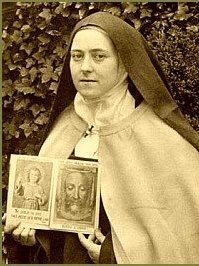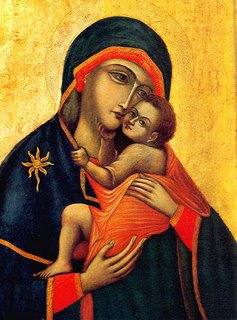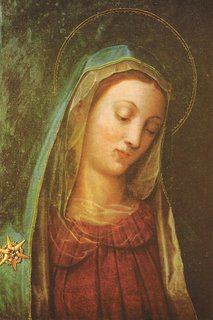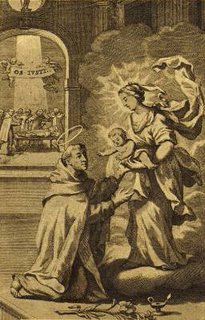 Catechism on Prayer
Catechism on Prayerby Saint John Vianney
See my children; the treasure of a Christian is not on the earth, it is in Heaven. Well, our thoughts ought to be where our treasure is. Man has a beautiful office, that of praying and loving. You pray, you love--that is the happiness of man upon the earth. Prayer is nothing else than union with God. When our heart is pure and united to God, we feel within ourselves a joy, a sweetness that inebriates, a light that dazzles us. In this intimate union God and the soul are like two pieces of wax melted together; they cannot be separated. This union of God with His little creature is a most beautiful thing. It is a happiness that we cannot understand.
We have not deserved to pray; but God, in His goodness, has permitted us to speak to Him. Our prayer is an incense which He receives with extreme pleasure. My children, your heart is poor and narrow; but prayer enlarges it, and renders it capable of loving God. Prayer is a foretaste of Heaven, an overflow of paradise. It never leaves us without sweetness. It is like honey descending into the soul and sweetening everything. Troubles melt away before a fervent prayer like snow before the sun. Prayer makes time pass away very quickly, and so pleasantly that one does not perceive how it passes. Do you know, when I was running up and down the country, at the time that almost all the poor priests were ill, I was praying to the good God all along the road. I assure you, the time did not seem long to me.
We see some persons who lose themselves in prayer like a fish in the water, because they are all for God. There is not division in their heart. Oh, how I love those generous souls! Saint Francis of Assisi and Saint Colette saw Our Lord and spoke to Him as we talk to each other. While we, how often we come to church without knowing what we come for, or what we are going to ask! And yet, when we go to one's house, we know very well what we are going for. Some people seem to say to God, "I am going to say two words to Thee, to get rid of Thee." I often think that when we come to adore Our Lord, we should obtain all we wish, if we would ask it with very lively faith, and a very pure heart. But, alas! we have no faith, no hope, no desire, no love!
There are two cries in man, the cry of the angel and the cry of the beast. The cry of the angel is prayer; the cry of the beast is sin. Those who do not pray, stoop towards the earth, like a mole trying to make a hole to hide itself in. They are all earthly, all brutish, and think of nothing but temporal things, . . . like that miser who was receiving the last Sacraments the other day; when they gave him a silver crucifix to kiss, he said, "That cross weighs full ten ounces." If there could be one day without worship, it would no longer be Heaven; and if the poor lost souls, notwithstanding their sufferings, could worship, there would be no more Hell. Alas! they had a heart to love God with, a tongue to bless Him with; that was their destiny. And now they are condemned to curse Him through all eternity. If they could hope that they would once pray only for one minute, they would watch for that minute with such impatience that it would lessen their torments.
"Our Father who art in Heaven!" Oh, how beautiful it is, my children, to have a father in Heaven! "Thy kingdom come." If I make the good God reign in my heart, He will make me reign with Him in His glory. "Thy will be done." There is nothing so sweet, and nothing so perfect, as to do the will of God. In order to do things well, we must do them as God wills, in all conformity with His designs. "Give us this day our daily bread." We are composed of two parts, the soul and the body. We ask the good God to feed our poor body, and He answers by making the earth produce all that is necessary for our support. . . . But we ask Him to feed our soul, which is the best part of ourselves; and the earth is too small to furnish enough to satisfy it; it hungers for God, and nothing but God can satiate it. Therefore the good God thought He did not do too much, in dwelling upon the earth and assuming a body, in order that this Body might become the Food of our souls. "My Flesh," said Our Lord, "is meat indeed. . . . The bread that I will give is my Flesh, for the life of the world". The bread of souls is in the tabernacle. The tabernacle is the storehouse of Christians. . . . Oh, how beautiful it is, my children! When the priest presents the Host, and shows it to you, your soul may say, "There is my food." O my children, we are too happy! . . . We shall never comprehend it till we are in Heaven. What a pity that is!
after http://www.catholic-forum.com













































